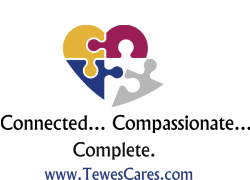|
If you have more than one child, deciding how to distribute your assets among them may prompt some angst: If and how should your will or trust reflect your understanding of their different needs? According to a Merrill Lynch study, two-thirds of parents over age 55 are open to the idea of unequal bequests.
"Fair" does not necessarily mean "equal." If one child has invested considerable time caring for you during health challenges—perhaps giving up valuable income-earning years—should that be reflected in their inheritance? Again, two-thirds of parents think it should. (Not all children agree.) If one child is in a lucrative profession and the others are not so well paid, should you bequeath equally or according to need? Should a health-challenged child get more? What if some of your kids have children and others do not? Should the nonparents get less? Money does not equal love. This is a self-evident truth. But as a culture, we tend to view money as a proxy for affection. Differing amounts can bring up old resentments. "Dad loved you best …" These feelings may even play out in a court battle. (Sigh) There are myriad ways to divide the pie. Here are three common scenarios:
Work with an estate planning attorney. There may be options you hadn't thought of and details you need to include. You will need an attorney to draw up the final documents. Are family dynamics a source of worry for you? We are experts in the needs of aging families. Give us a call: 203-826-9206. Learn more about our aging life services.
0 Comments
Mild cognitive impairment (MCI) is the medical name for memory problems that exceed the "normal forgetfulness of aging" but are less than associated with an Alzheimer's diagnosis. If you have received a diagnosis of MCI, you are at risk for continued significant cognitive decline. Each year about 10–15% of persons with MCI receive an Alzheimer's diagnosis, as compared to 1–3% of all older adults.
That said, many people with MCI do not experience further decline. And some people even improve--if their memory loss was caused by something fixable like a medication reaction or untreated depression. For all these reasons, it is important to have symptoms reassessed every 6–12 months to monitor changes. There are things you can do. While there is no medical treatment as yet for MCI, some everyday activities can help prevent or slow its progression. The goal is to increase blood flow and oxygen to your brain, and keep your mind active.
Memory aids. Accept that you are forgetful and support yourself for success. Make ample use of to-do lists, big calendars, and notes or alarms on your phone. Leverage the power of routines. Put your keys and glasses, purse/wallet in the same place every time. Set yourself up for environmental cueing, consciously putting things where you will see them when needed, such as leaving your morning pills by the coffee maker. Worried about MCI? Give us a call. We can help. 203-826-9206 Learn more about our services to help you age well. |
AuthorLeslie Alin Tewes is a Geriatric, Disability & Medical Care Manager; Elder and Adult Care Advocate; Quality Improvement Specialist. Archives
July 2024
Categories |




 RSS Feed
RSS Feed

